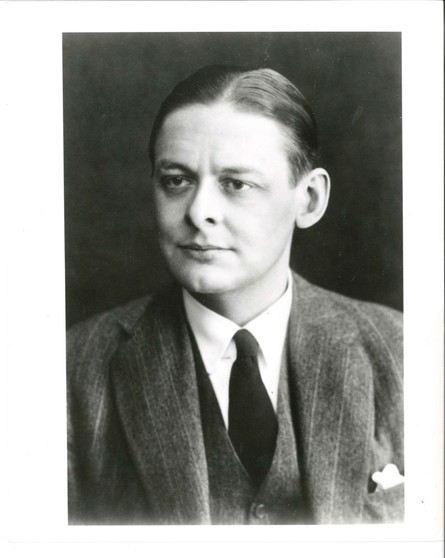EAR TO EAR: The Waste Land, a sound installation
July 21st: 2pm
July 22nd - 25th: 10am, 2pm, 4pm
A sound installation of The Waste Land by T S Eliot
Duration 40 mins
Ticket Price: £5
World Premiered at the 2022 f r a g m e n t s festival in the City of London April 2022
VOICES
- Ben Boskovic
- Shomit Dutta
- Robert Glenister
- Anna Ianni
- Danielle Mahailet?
- Sarah Mann
- Ann Queensberry
- Natalie Raybould
- Katharina Sellner
- Harp Player:Stef Van Vynckt
PROGRAMME NOTE FROM COMPOSER
But at my back in a cold blast I hear
The rattle of the bones, and chuckle spread from ear to ear.
(The Waste Land, lines 185 – 86)
When Sean Doran and Liam Browne first contacted me about the project, I had only a vague idea of who T.S. Eliot was, and whatThe Waste Landstood for in the history of literature. Several month later, I almost know by heart each line of the poem, and feel very intimate with its numerous details, its opacities, its bursts of dark humour, its secret beauties, and its very moving moments. Rather than ‘set’ the poem to music in a traditional way, with singers and instruments, the intention ofEar to Earwas to create an intermediate form between audio drama and electroacoustic music which would do justice to the polyphonic dimension of the poem and blur the distinction between word and music. The poem is read by a cast of 10 people we recorded separately: male and female, young and old, actor and non-actor – we tried to make this ‘chorus’ as ‘various’ as possible, and to make it reflect the ‘European-ness’ of the poem by including French, German and Italian natives. Most of the musical material ofEar to Earwas directly derived from those recorded voices: either I created electroacoustic deformations of vocal sonority, or I imagined musical events closely related to the melodic patterns of speech: imitations, accompaniments, canons, loops… By contrast, the very short fourth section,Death by Water, marks a brief detour towards a more classical setting for soprano and harp. Then, in the final part,What the ThunderSaid, word itself becomes music, the very famous last line in Sanskrit becoming a mantra which runs all over the section and gives its rhythmic structure, along with a very regular low B natural played on the harp.
Who is the third who walks always beside you?
(The Waste Land, line 359)
But between the ear of the poet and my ear, there’s a third one. As I got more deeply into the composition of the piece, a response by singer/songwriter Scott Walker (1942-2019), a strong admirer of Eliot’s poetry, popped back into my mind. When asked how he conceived and wrote the crazy music of his later albums (fromTilt, 1995 toSoused, 2014), he invariably replied that, in order to compose, he simply put himself at the service of his texts, like a slave. This statement remained very much with me as I composed my piece, and it seemed to me that to some extent I was putting it into practice. I made myself a slave to Eliot’s poetry, patiently weighing each decision against its effect on the understanding, reception, or feeling of the text. But by doing this – dialectic reversal – I felt that this restraint opened my music to a world of ideas and sounds I would not otherwise have imagined.
Pierre-Yves Macé
Biography
Pierre-Yves Macé’s music stands at the nexus of contemporary classical, electroacoustic composition and sound art. His first recording, Faux-Jumeaux, was released on Tzadik, John Zorn’s label, in 2002. An important part of his work is based on recorded sound, document or archive used as a prime material. His work-in-progress Song Recycle for piano and loudspeaker, first composed in 2010, deals with a selection of recordings of amateur vocal performances pilfered fromYouTube. He has been invited to perform or commissioned to write new work by the Festival d’Automneà Paris,Villette Sonique (Paris), Ars Musica (Bruxelles), Les Musiques, MIMI (Marseille), AngelicA (Bologna), Santarcangelo (Rimini), Akousma (Montreal)
In 2016-2017, he was guest composer for the Orchestre de chambre de Paris. As an accomplished scholar of musicology (University of Paris VIII), Macéhas published the book Musique et document sonore (“Music and Sonic Documents”) which describes his studies of the relationships between documentary sounds and musical composition.
Concept and Curation: Seán Doran and Liam Browne (DoranBrowne)



